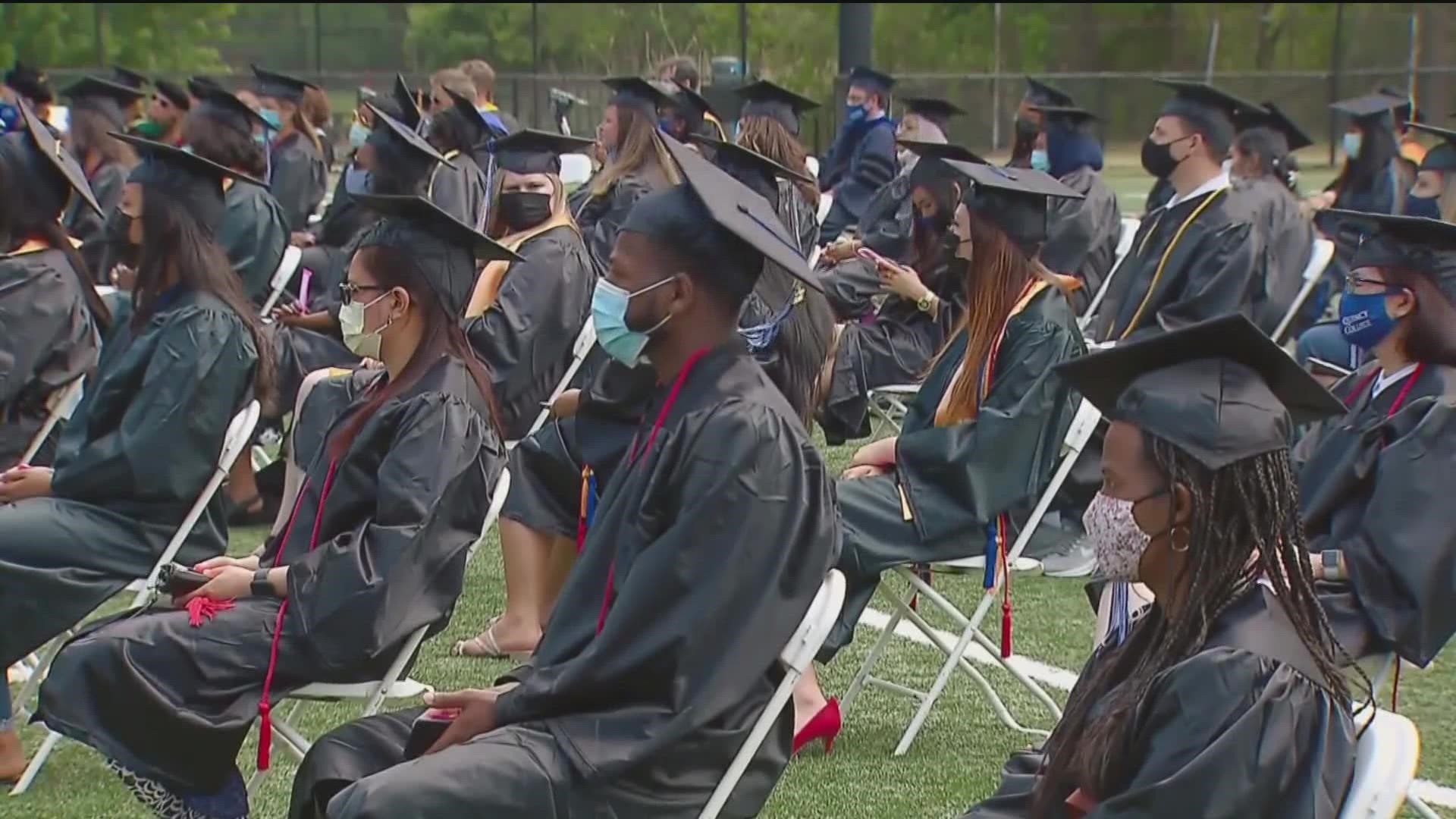SAN DIEGO — The government is sending out a consumer warning about scammers preying on those with college loans who are counting on the federal forgiveness plan.
The U.S. Department of Education has not started contacting student loan borrowers about the forgiveness plan, but the government is warning those borrowers they could be targeted by scammers.
Fraudsters are luring you in with emails, text messages and phone calls hoping to cash in your need to pay off your college loan.
“I've gotten a few of them and thought oh this pretty legit,” said SDSU junior, Jake Brandenburger.
Consumer watchdog groups are sending a warning about potential scams in light of the newly announced federal college loan forgiveness plan.
“The scammers love it when they can take something this kernel of truth, a little nugget of reality, and then spin the lies around that,” said Eva Velasquez, President/CEO Identity Theft Resource Center.
She says the hooks are no different than other scams just new victims to prey on.
“A red flag is if someone is sending you messages saying we have the inside scoop, or here's the secret way to get even more forgiven,” said Velasquez.
CBS 8 also spoke with Andrea who is an advisor to the director of the Consumer Financial Protection Bureau, a federal agency that enforces consumer protection laws.
She says understand that these government programs are free to sign up.
“When it comes to student loan debt cancellation, you should never pay anyone to get help accessing cancellation,” said Matthews.
Second, you should also know the ins and outs of your student loan and check the terms of your loan with your provider before falling for any benefit promises.
You should also do your research.
“Someone's called and you're not sure, just hang up, you can find the right phone number and always call your service on your own,” said Matthews.
Number four, look twice before you click. Imposters can create phony websites that look legit and finally protect your data, that includes your federal student aid ID and password.
“No legitimate actor is going to ask you for that information,” said Matthews.
Brandenburger says he knows the scammers are smooth and will keep his information protected.
“It's important to see who you are getting emails from and text messages from,” said Brandenburger.
To learn more about protecting yourself against college loan scammers visit the Consumer Financial Protection Bureau and Identity Theft Resource Center. You can also file complaint with both agencies.
To learn more about who your service provider is an Education Department affiliate who helps with college loans visit the Federal Student Aid website.
WATCH RELATED: What does student debt look like in California? (August 2022)

